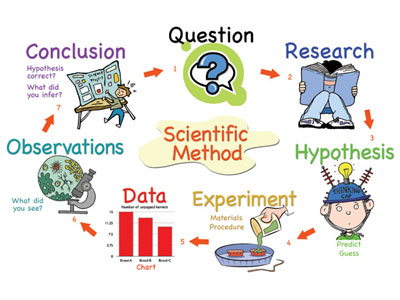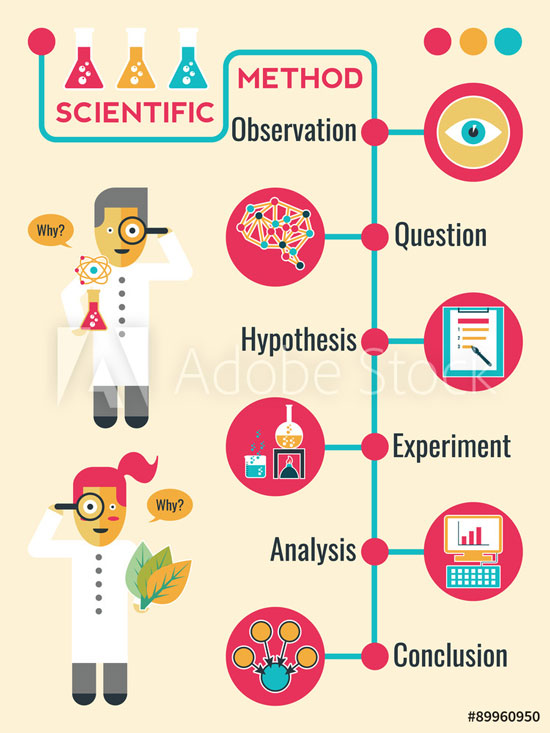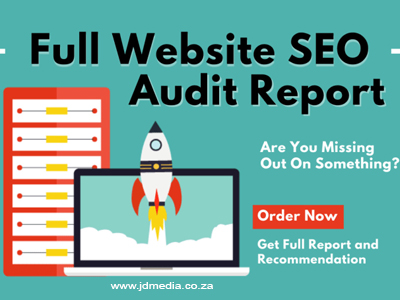6 Steps to Find Your True Google Ranking Factors - The Scientific Method for SEO

We know that Google and all major search engines want to serve the most relevant answer to searcher’s queries. We also know that “relevance” is a subjective quality. So if you want to find what works for your unique site, you’re going to have to test.
Search certainly isn’t rocket science, but it can be much better understood with a little bit of basic science background.
This scientific method, while most often applied to realms like physics and chemistry, can actually be applied to any problem in the modern world. Because it’s the most objective, logical framework we have, it tends to get the best results. Apply that method to your SEO strategy, and you’re almost guaranteed to start seeing better, more measurable results.
For those who don’t work in the discipline, the world of search engine optimization is usually perceived as dark and mystifying.
And what better way to test our SEO theories than the scientific method?
Step 1: Observe - Ask a Question
The first step is the easiest, as the question in SEO is usually “how can I rank higher?”
Keep a log of your questions and answers - Documenting your observation or question can help keep your SEO experiments on track. Try to keep a single focus, testing one thing at a time.
Step 2: Conduct background research.
Don’t just jump in blindly. Do your due diligence first and start researching the product, service and or topic.
Look for any existing documentation on the subject – Google Webmaster blog posts, Google patents, third-party research, etc.
This step includes a quantitative data analysis in order to obtain deeper insight into the types of visitors that are coming to your website and its competitors. This data is also useful in revealing any untapped pockets of consumers within the market and identifying the key need states.
Step 3: Form a testable hypothesis.
Now, you’ll need to form a hypothesis. Keep in mind that a hypothesis is not a conclusion; the conclusion can only come after the next steps of the process.
Right now, all you have is a guess, even if it is an educated one, because it isn’t supported by any data you’ve been able to uncover.
With the data acquired from the observation and research phases, you can now postulate a sound hypothesis. This ties back to the very first step in which we characterized baseline performance statistics. For example, “Using branded keyword phrases yields a 35% higher CTR than using unbranded keyword phrases” is a testable hypothesis that uses a key performance indicator, CTR, as the dependent variable.
As an example, let's ask: “will doubling my number of written articles per week increase my rank?” Assuming you’ve done research that suggests the answer to this question is yes, you can come up with a hypothesis like “Writing two articles per week instead of one will result in a sharp increase in average keyword ranks and organic traffic within two months’ time. The increase over these two months’ time will be greater than the increase from two months ago until now.
Step 4: Use Experiments to Test the Hypothesis.
You have your hypothesis, and now you have to test it. Even if the research suggests that your findings will match your hypothesis, you still have to test it in a live environment for you to be certain of the results.
The testing phase in the search process involves technical integration and development, content strategy and development, link strategy and deployment, and a lot of patience. It’s during this testing period where we begin to bridge the connections between keyword phrases and the consumers searching for them in order to effectively provide optimization recommendations. By explaining these connections via market research and need state analysis (as opposed to marketing jargon), we’re able to build a multi-channel bridge that will apply its positive affect across all capabilities (paid, social, UX, etc).
Make do with what you have. Your previous two months of data can serve as the control group. Run the experiment, being careful to avoid any other changes (extra variables) that might interfere with your conclusion.
Step 5: Analyze Your Data.
Now it’s time to analyze your data so that you can draw a logical conclusion. You’re essentially trying to uncover, based on the data, whether your hypothesis was right or wrong.
You’ll be able to look back at your original hypothesis and determine whether it is true or false. If it appears to be true, then congratulations—you now have a bona fide strategy you can permanently integrate into your long-term approach to SEO. If it appears to be false, you’ll either have to modify the experiment and try again or rest confident that the strategy is not an effective one.
You need to be able to measure your results and optimization.
Step 6: Form a Conclusion and Report on Your Results.
Finally, it’s time to report on your results.
Results should be reported in a tailored fashion based upon the KPI’s and business objectives. Although rankings and traffic values are important to consider, they are not the determining metric of success. The true indicator is if the conversion was actually attained. At this point, it is crucial to inspect all possible variables that are affecting that output. This is where the optimization comes into play – usability and A/B tests are performed, variables are adjusted, and the entire process repeats itself in order to achieve more desirable results (i.e. greater conversion rates).

![]()
Author: Jeanette Du Toit [Founder & owner of Jaydee Media]
 An IT (Information Technology) Professional with various skills and experience.
An IT (Information Technology) Professional with various skills and experience.
Google certified Digital Media Marketer.
An Experienced Web Developer, Web Designer, SEO [Search Engine Optimazation] specialist, Google Adwords + PPC; Digital marketing expert, Lead generation expert and Social Media specialist.












